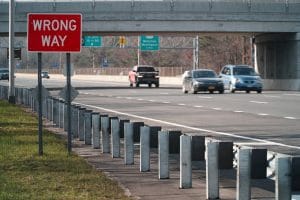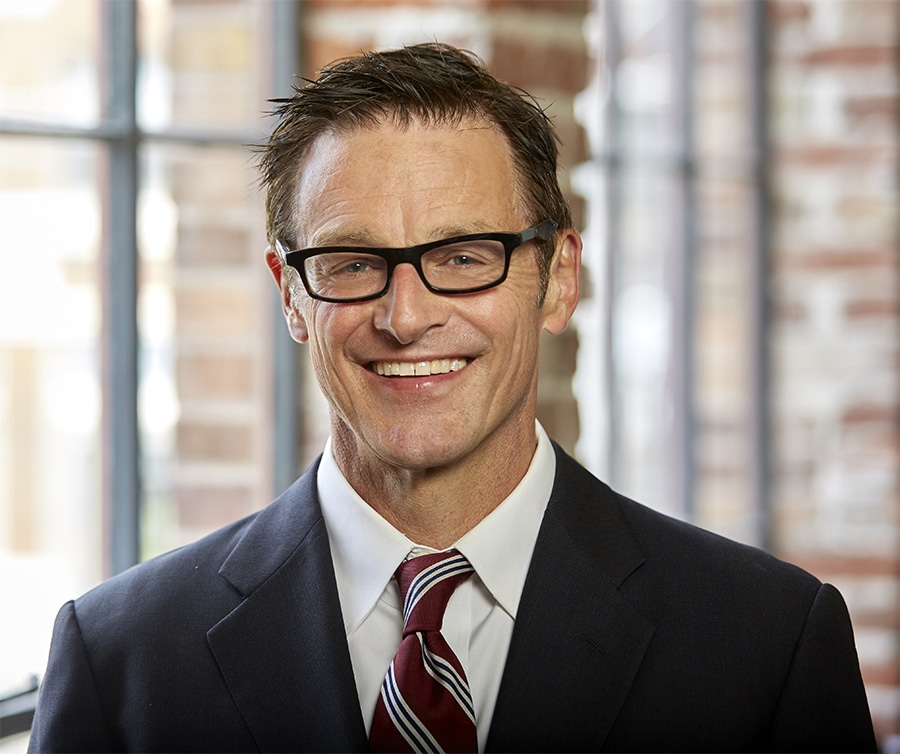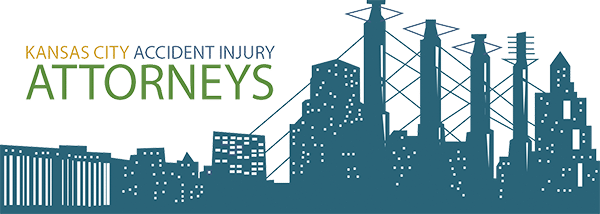Wrong-Way Accidents and How to Avoid Them
 The most important rule on the road is to follow traffic laws and drive in a safe and responsible manner. However, even if you take every precaution behind the wheel, it’s nearly impossible to protect yourself from careless, negligent, or impaired motorists. Wrong-way drivers can be especially dangerous to other people on the road, often causing high-speed, head-on collisions resulting in serious or fatal injuries.
The most important rule on the road is to follow traffic laws and drive in a safe and responsible manner. However, even if you take every precaution behind the wheel, it’s nearly impossible to protect yourself from careless, negligent, or impaired motorists. Wrong-way drivers can be especially dangerous to other people on the road, often causing high-speed, head-on collisions resulting in serious or fatal injuries.
A 2021 analysis from the AAA Foundation for Traffic Safety noted “there were 2,008 deaths from wrong-way driving crashes on divided highways between 2015 and 2018, an average of approximately 500 deaths a year…up 34% from the 375 deaths annually from 2010 to 2014.”
Dr. David Yang of the AAA Foundation also explains, “Wrong-way crashes on divided highways are often fatal as they are typically head-on collisions. And unfortunately, as the data shows, fatalities from these crashes are on the rise.”
Why do wrong-way accidents happen?
The Federal Highway Administration (FHWA) describes wrong-way driving crashes as:
One in which a vehicle traveling in a direction opposing the legal flow of traffic on a high–speed divided highway or access ramp collides with a vehicle traveling on the same roadway in the proper direction… Wrong–way driving crashes involve high–speed head–on or opposite direction sideswipe crashes, which tend to be more severe than other types of crashes.
The FHWA reports 36,560 traffic fatalities in 2018, with 428 attributed to wrong-way crashes. Although as of this writing they have not tabulated the number of wrong-way crashes for 2019, that year saw 36,096 overall car accident fatalities, so it stands to reason that wrong-way accidents may have increased as well.
In their analysis, the AAA Foundation used nationwide data from the FHWA to determine the top factors leading up to wrong-way accidents and head-on collisions. These are the top three:
- Alcohol or drug impairment. Researchers found the primary cause of most wrong-way accidents is drunk and impaired driving. In fact, AAA reports that about 60% of wrong-way drivers involved in accidents (6 out 10) had a blood alcohol concentration of 0.08% or higher. Dr. Rob Molloy of the National Transportation Safety Board (NTSB) said, “Alcohol impairment is, by far, the single most significant factor in the majority of wrong-way driving crashes, which unfortunately has not changed since the NTSB issued its Wrong-Way Driving special investigation report in 2012.” (More on this report in a bit.)
- Driving alone. AAA also found that driving without a passenger contributes to wrong-way crashes. Nearly 87% of drivers involved in wrong-way accidents were alone at the time, leading researchers to hypothesize that having another person in the car with you can reduce the risk: “Passengers may alert drivers that they are entering a one-way road, preventing them from entering the highway in the wrong direction, or alerting them to their error, helping the driver take corrective action before a crash occurs.”
- Older drivers. Even though older adults typically spend less time on the road and drive fewer miles overall, AAA reports this segment of the population experiences more wrong-way car accidents. The Insurance Institute for Highway Safety notes that “some seniors don’t self-regulate or adjust their driving, including some who have high levels of cognitive impairment.”
The NTSB’s wrong-way driving investigative report gives further insight on these types of crashes.
An investigation into wrong-way driving
Even though it was released all the way back in 2012, the NTSB’s “Wrong-Way Driving” special investigation report still applies today, in terms of the finer details regarding wrong-way car accidents. This information includes the following:
- Most wrong-way accidents happen on the weekend.
- 78% of wrong-way accidents happen between 6:00pm and 6:00am, likely because visibility during those hours is lower.
- The majority of wrong-way accidents occur in the lane closest to the median.
- Drivers over age 70 make up about 15% of wrong-way drivers in fatal accidents.
They also found the three most common actions leading to a wrong-way accident are when a driver:
- Mistakenly enters an exit ramp.
- Makes a U-turn on a main road.
- Uses an emergency turnaround to make a U-turn.
Although wrong-way accidents may not happen frequently, when they do, they can cause severe injuries or fatalities to other drivers and passengers.
How can I avoid a wrong-way driver?
Most wrong-way accidents occur on divided highways and roads with medians rather than concrete dividers. If you are driving and see the unthinkable – headlights coming directly at you – try to take the following actions:
- If a wrong-way driver is coming at you, slow down and move as far to the right as possible, even if there’s no shoulder. Just get out of the way.
- When driving at night, stick to the center lane to give yourself room to maneuver if a driver is coming at you head-on.
- Avoid slamming on your brakes or swerving into other lanes to avoid a wrong-way driver when there is traffic around you.
- Flash your headlights and honk your horn.
- Pull over to safety as soon as possible and call 911 with your location and a description of the wrong-way vehicle, its direction of travel, and plate number if you were able to get it.
If you are in an accident with a wrong-way driver, do not leave the scene. Contact authorities and wait for them to arrive on the scene. Police can take a formal report, and paramedics can treat you for your injuries.
Then, contact Kansas City Accident Injury Attorneys for legal guidance. We can investigate why your accident happened, who caused it, and who should be responsible for your injuries and losses. You shouldn’t have to worry about bills and expenses while you are trying to recover from your injuries. We can help. To schedule a free consultation at our offices in Kansas City, MO, call 816-471-5111 or fill out our contact form. We also maintain offices in Lee’s Summit, Parkville, and St. Joseph, MO and in Olathe and Overland Park, KS.

Kansas City personal injury attorney James Roswold of Kansas City Accident Injury Attorneys handles cases dealing with victims of personal injury, medical negligence, wrongful death, workers compensation, nursing home negligence, premises liability, product liability, car accident, truck accident and motorcycle accident cases.

